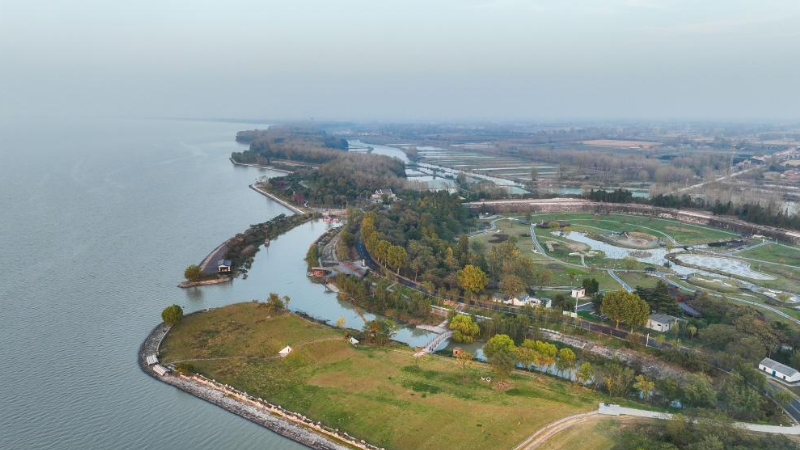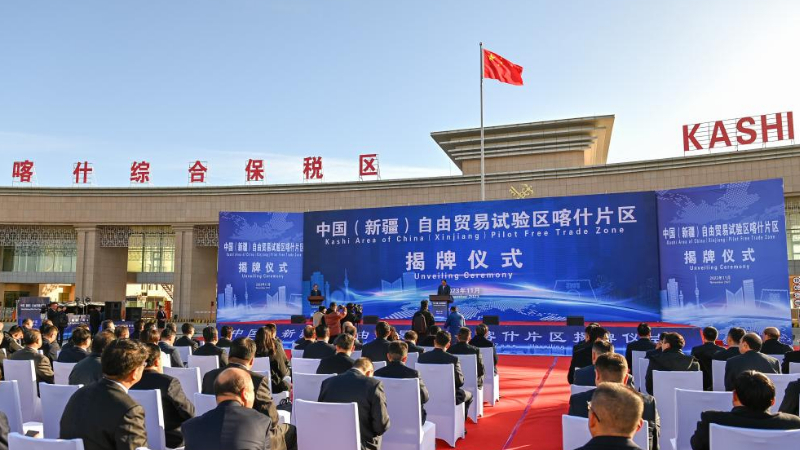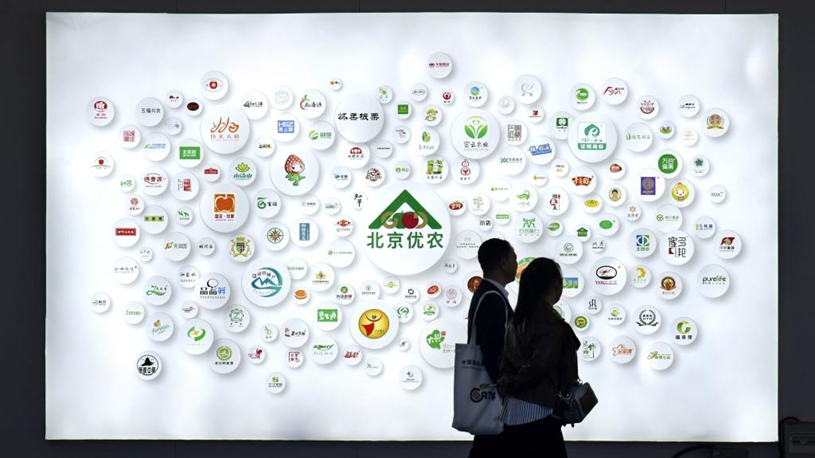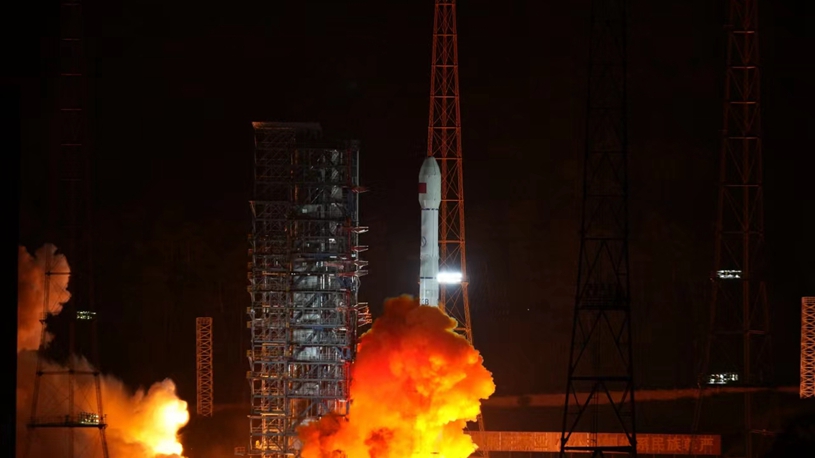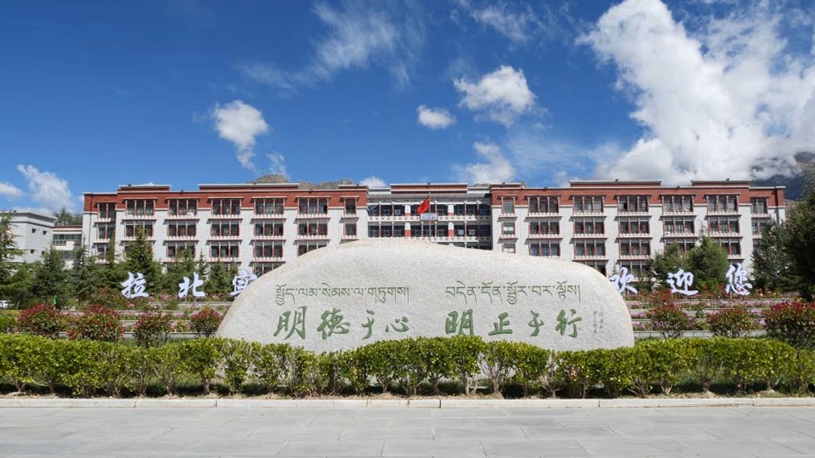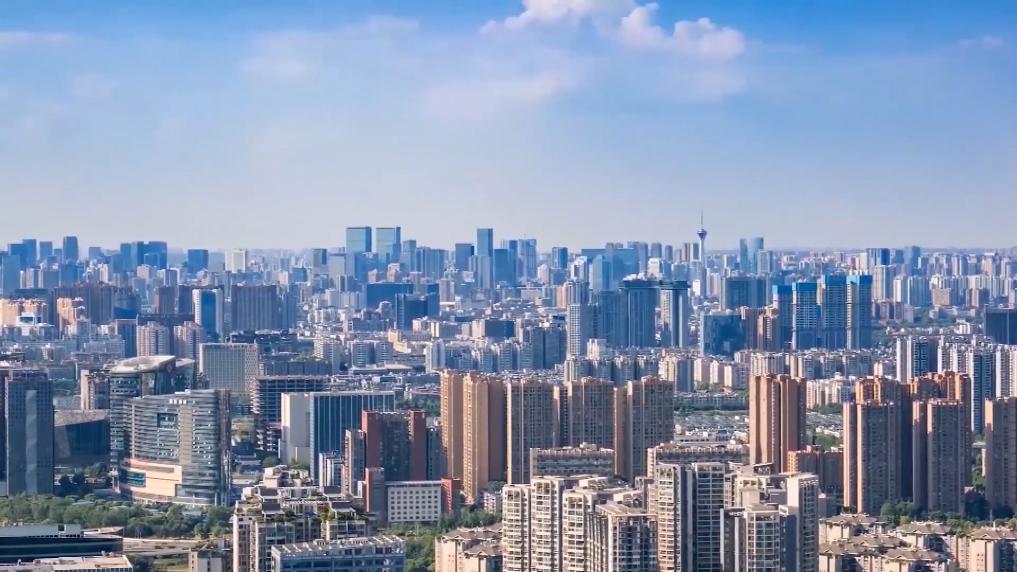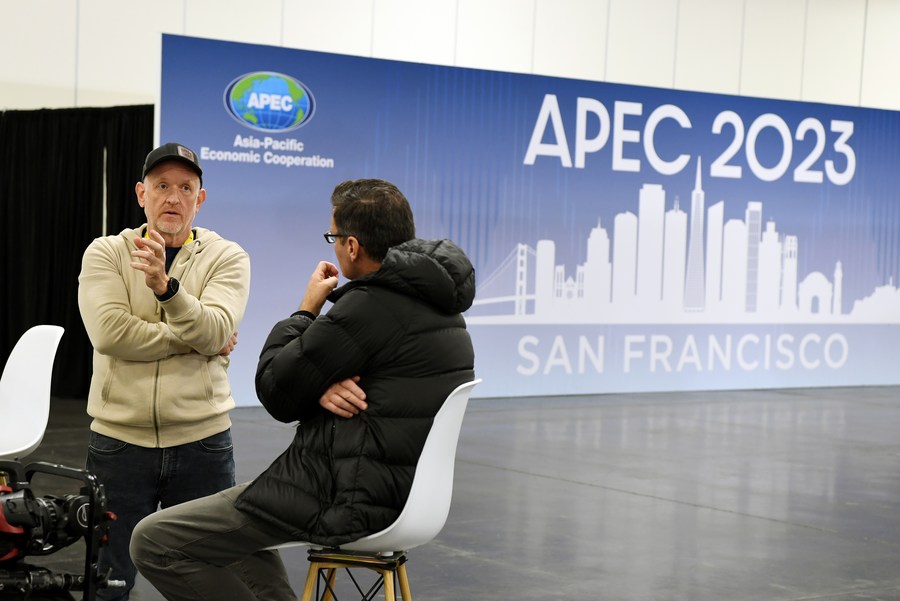
Journalists talk in front of a poster at the international media center of APEC 2023 in San Francisco, the United States, on Nov. 12, 2023. (Xinhua/Li Rui)
Calculations aside, the San Francisco meeting still is a good thing in itself. But it needs to be followed up with real changes on the U.S. side.
by Yi Xin
The other shoe has dropped. After talking for some time about "paving the way for San Francisco," China and the United States have decided that the two heads of state are ready for a meeting. The much-anticipated bilateral meeting is something to look forward to, as much as something to be viewed with a cool head.
From Bali to San Francisco, the journey has been tortuous.
This year did not start very well for China-U.S. relations. The balloon incident was a "black swan" that could have been shooed away quietly. Unfortunately, some U.S. politicians went out of their way to keep it in public sight and used it to stoke paranoia. Then the United States played games with the one-China principle, allowing Tsai Ing-wen her most coveted "stopover" in the United States, selling Taiwan arms and providing military funding for the island. The world's superpower continued to sabotage China's technological advances with export controls and sanctions on Chinese tech companies.
For months, it looked as if the United States had never made the Bali commitments, i.e. not seeking a new Cold War, not seeking to change China's system, not seeking to revitalize alliances against China, not supporting "Taiwan independence," and not having the intention to have a conflict with China.
In response to these provocations, China did not walk away. Instead, it actively reaches out to all walks of life in the United States. It welcomed visits by senior officials, including Secretary Antony Blinken, Secretary Janet Yellen, Special Envoy John Kerry and Secretary Gina Raimondo. It hosted the delegations of Senate Majority Leader Charles Schumer and California Governor Gavin Newsom. Chinese President Xi Jinping talked with Dr. Henry Kissinger and Bill Gates, sent letters to the National Committee on U.S.-China Relations and the China-U.S. Sister Cities Conference, and replied to a letter from Philadelphia Orchestra CEO Matias Tarnopolsky.
The unchanging belief in China is that China-U.S. relations have a bearing on the well-being of the 1.7 billion people of the two countries and the future of the world. As early as 1988, Chinese leader Deng Xiaoping said to George Shultz, then U.S. secretary of state, that China-U.S. relations need to be developed, and this development should be brought to a higher perspective, to the perspective of safeguarding world peace and the interests of all mankind.
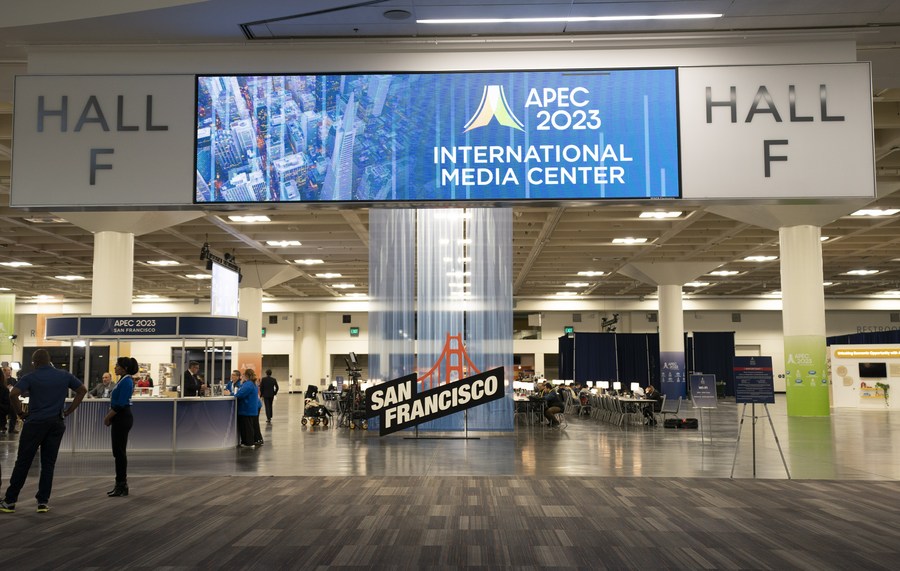
Journalists and staff members work at the international media center of APEC 2023 in San Francisco, the United States, Nov. 12, 2023. (Photo by Li Jianguo/Xinhua)
With concerted efforts, things are looking up between the two giants. A number of bilateral consultations and working groups have become active and flights have increased.
But is this relationship completely out of the woods? Most likely not. The meeting between the two presidents, though a good sign, is also driven by some very practical considerations on the U.S. side. The country is having economic concerns at home including inflation, debt ceiling, and widening income gaps. The trade barriers it has put up and sanctions slapped on others are only making things worse. Fixing these problems, which is important given the onset of an election season, requires working with China. Latest polls in the United States show that 73 percent of respondents support high-level exchange with China and hope the meeting will help stabilize the relationship between the two countries.
There are international priorities as well. On climate change, the Middle East, Ukraine and the Korean Peninsula, the United States sees the need to engage China.
Calculations aside, the San Francisco meeting still is a good thing in itself. But it needs to be followed up with real changes on the U.S. side.
Most importantly, a change of perception is critical. The United States needs to stop seeing China as a rival or threat. If it wants to compete, it must do so in a fair way. No more overstretching the concept of national security to undercut China at every turn. As the 2024 general election gets near, U.S. politicians need to keep on checking their urge to badmouth China for cheap political points.
In the long run, there should be some ground rules for how the two countries should manage their relationship. China's formula proposed at Bali -- mutual respect, peaceful coexistence and win-win cooperation -- is a good starting point. "Return to Bali" is the best possible way to get to San Francisco and keep going farther after that.
Editor's note: Yi Xin is a current affairs commentator based in Beijing.
The views expressed in this article are those of the author's and do not necessarily reflect the positions of Xinhua News Agency.■


